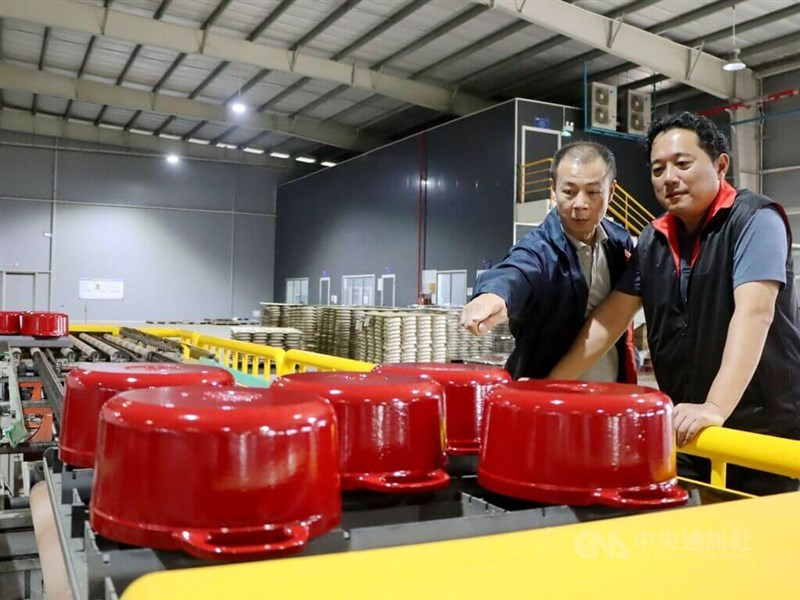Taiwanese manufacturers operating in Vietnam are urgently reevaluating their U.S.-dependent export models following a 46% U.S. import tariff on Vietnamese goods announced by former President Donald Trump on April 2, 2025. Although the White House later introduced a 90-day grace period, the anxiety remains high among exporters, revealing deep vulnerabilities in the current global supply chain strategy.
Backdrop: Trump’s “Reciprocal Tariff” Shockwave
As part of Trump’s aggressive “America First” trade resurgence, the U.S. slapped tariffs on dozens of countries. Vietnam was hit with one of the highest: 46%, under the logic of “reciprocity”—a matching of tariffs based on what U.S. goods face overseas. While the administration offered a 90-day delay on the imposition (excluding China, which now faces tariffs of 145%), many businesses see this as a temporary reprieve rather than a solution.
Taiwanese Manufacturers’ Predicament in Vietnam
🔧 Brico Industry Co., Ltd. – Heavy Reliance on U.S. Markets
Brico, which manufactures cast iron cookware and stove parts in Vietnam, is feeling the heat. Lo Shih-liang (羅世良), the chairman, revealed that over 40% of Brico’s exports go to the U.S., meaning any tariff disruption poses a massive risk to the company’s bottom line.
Lo described his daily routine as working by day and watching U.S. news until 3–4 a.m., illustrating how real-time policy shifts from Washington are dictating factory floor decisions in Southeast Asia.
Lo’s contingency strategy includes:
- Encouraging early orders from U.S. buyers during the 90-day pause.
- Using Mexican warehouses to reroute goods into the U.S. market more flexibly.
- Shifting focus to emerging markets in Europe and the Middle East to reduce U.S. market reliance from 45% to 30%.
🔍 Insight: This shift to mid-tier markets suggests a long-overdue diversification strategy among Taiwan’s overseas investors. A trend that could see companies rebalancing their export dependencies post-pandemic and post-tariff disruptions.
🏋️ Johnson Health Tech. Co., Ltd. – Fitness Giant on Edge
In Bắc Ninh Province, Sun Chi-an (孫其安), general manager of Johnson Health Tech’s Vietnam factory, said the surprise 46% tariff rattled the entire management team. Even though U.S.-Vietnam ties seemed stable, the announcement blindsided the firm.
Sun shared that:
- Production remains stable, and the firm is keeping manpower intact despite the uncertainty.
- They’re considering passing some costs to consumers.
- They may negotiate cost-sharing with suppliers to absorb the blow.
- They believe Vietnam’s tariff rate will still be lower than China’s, giving them a slight edge over Chinese competitors post-tariff.
🔍 Commentary: Johnson’s strategic patience is notable. Rather than a knee-jerk supply chain exit, the company is treating this as a long-game competition advantage — betting on a more favorable position relative to Chinese rivals also facing steep duties.
🔎 Analysis: What This Means for Taiwan’s Global Positioning
This latest development underlines the increasing fragility of globalized supply chains, particularly for export-driven economies like Taiwan that rely on overseas manufacturing bases such as Vietnam. With Taiwanese businesses caught in geopolitical crossfire, there’s an urgent call to:
- Diversify export markets beyond North America.
- Localize supply chains to be more flexible and adaptable.
- Engage proactively in trade diplomacy, especially through Taiwan’s representative offices.
As Taiwanese companies recalibrate, ASEAN, Middle East, and EU markets are poised to become more attractive as hedges against U.S. trade volatility. This might mark a strategic turning point for Taiwan’s outward investment model, which has long been anchored to U.S. consumption.
❓ FAQs
Why are Taiwanese businesses affected by U.S. tariffs on Vietnam?
Many Taiwanese companies have factories in Vietnam to take advantage of lower labor costs. Products made there are labeled as Vietnamese exports, making them subject to U.S. tariffs on Vietnamese goods.
How much of Brico’s business relies on the U.S. market?
Over 40% of Brico’s business comes from U.S. exports, making the company highly vulnerable to American trade policy shifts.
What is the 90-day pause and who does it affect?
The Trump administration granted a 90-day delay on the tariff enforcement for most targeted countries (excluding China) to allow for negotiations and adjustments.
Are companies considering leaving Vietnam?
No immediate exits are planned, but companies are reconsidering their market focus and exploring alternative logistics strategies, such as using Mexican distribution points or targeting new markets.
Could this situation benefit Taiwan in the long term?
Yes. The forced diversification may help Taiwanese firms build more resilient global operations and reduce their overreliance on any single export destination.


